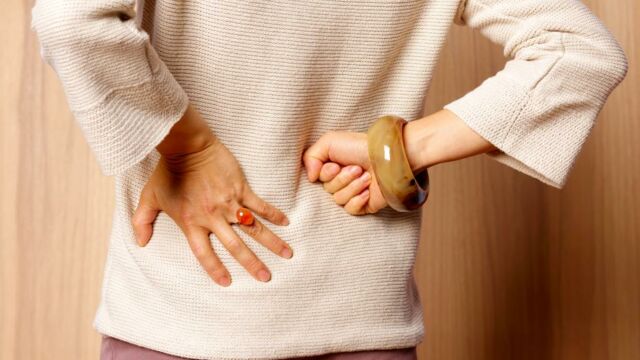The kidneys are located below the rib cage roughly near the lumbar vertebrae and are essential for the proper functioning of our organism. They filter the blood and remove toxins from the body through the urine.
Discover our latest podcast
Therefore, any pain in the kidney area should be taken seriously and checked by a doctor. The following clinical pictures can occur with kidney pain.
Renal insufficiency
Issues in the kidneys can be completely asymptomatic at first. Only in the case of chronic renal insufficiency, in which the kidneys only perform at 25% of their capacity, does it quickly become noticeable in many cases.
Early warning signs can be bladder and digestive problems, but also sleep disorders, which should not be taken lightly as sleep problems can also harbour other health risks.
Renal insufficiency can also occur as a result of another unrelated disease and should be treated immediately. Dialysis may be needed and in some cases a kidney transplant may be necessary. Research has already reached the point where an artificial kidney could simplify kidney transplants.
Renal pelvic inflammation
This bacterial infection of the kidneys must be treated immediately, in some cases even in hospital. It can occur, for example, as a result of an inadequately treated bladder infection, but also after blockages or physical abnormalities between the renal pelvis and the uterus.
Symptoms of renal pelvic inflammation include fever, chills, pain in the lumbar region and/or abdomen, burning during urination and urinary disorders.

Kidney stones or renal colic
Some claim that kidney stones are as painful as giving birth without an epidural. These crystals, which form from mineral salts in the kidneys, can block the urinary tract and lead to renal colic, depending on their size.
Kidney stones, also called nephrolithiasis, can be recognised by the following symptoms: fever and chills, severe persistent pain in the lower back that radiates to the abdomen and genitals, constant urge to urinate, discomfort when urinating and occasionally blood in the urine. Sometimes you can even see the stones in the urine with the naked eye.
About 14% percent of adults in England suffer or will suffer from urinary stones. If these stones are not flushed out naturally through regular urination, surgical intervention may be necessary, especially if the kidney stones are particularly large. To prevent kidney stones, make sure you always drink enough water.















